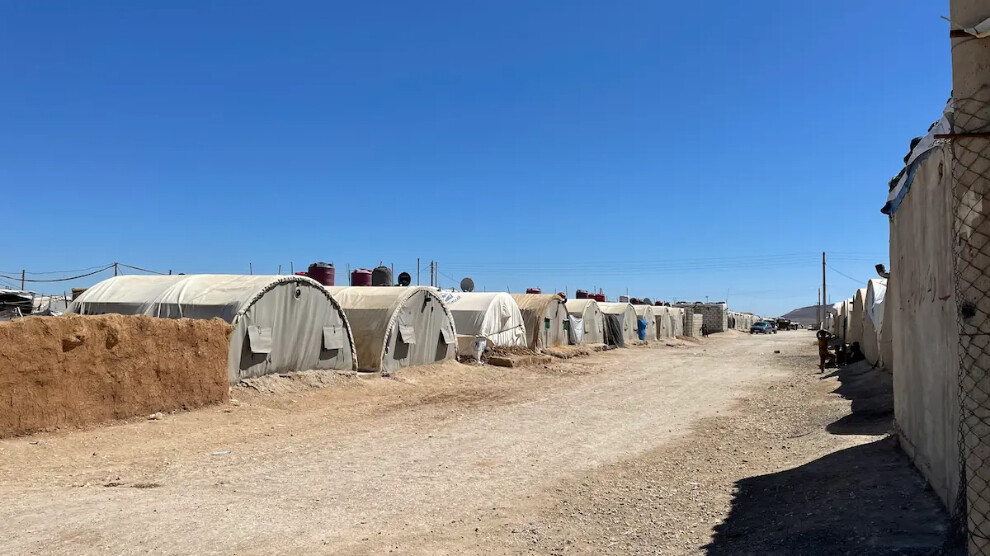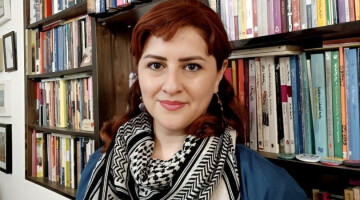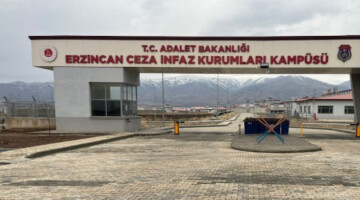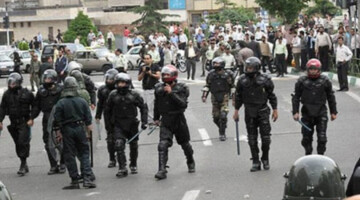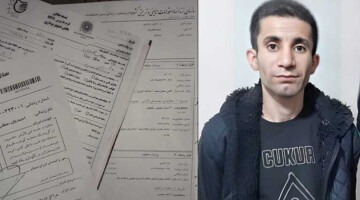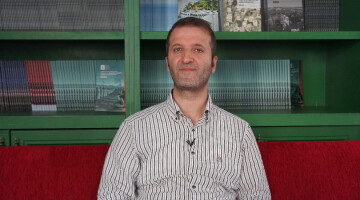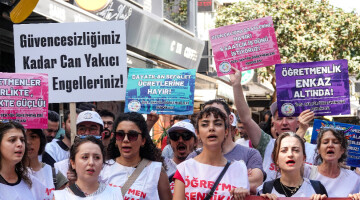Tens of thousands of internally displaced people in overstretched camps and shelters in northeast Syria are not receiving sustained or adequate aid, thereby negatively impacting their basic rights, Human Rights Watch (HRW) said on Tuesday. There is an urgent need for weather-appropriate shelter, sufficient sanitation, and adequate access to food, clean drinking water, health care, and education.
HRW pointed out that the assistance provided by United Nations agencies to camps and shelters in territories governed by the Kurdish-led Autonomous Administration of North and East Syria is inconsistent, leaving some camps and shelters, especially the “informal” ones, without sufficient or sustained aid. Although international nongovernmental organizations provide limited assistance, multiple gaps have led to health and hygiene breakdowns and shortages in essential materials during extremely hot and cold weather, raising concerns as to whether the current level of aid ensures the economic and social rights of the displaced people and meets the universal minimum standards for humanitarian assistance.
“Almost four years have passed since hundreds of thousands of people arrived in Kurdish-controlled northeast Syria seeking shelter and support after Turkey’s invasion of their hometowns,” said Adam Google, deputy Middle East director at Human Rights Watch. “But the lack of adequate help has created a precarious situation.”
The UN, other aid agencies, and the autonomous administration should urgently turn their attention to the precarious humanitarian situation unfolding in informal camps and collective shelters by prioritizing a rights-based approach, Human Rights Watch said.
The underserved camps are at capacity and forced to turn newly displaced Syrians away. Three of the informal camps were established following Turkey’s 2019 military incursion into the region that drove hundreds of thousands of people from their homes, and displacement continues, especially from villages on the frontlines between territory controlled by the autonomous administration and territory occupied by Turkey due to ongoing hostilities. The use of schools as shelters has disrupted education for the host and displaced populations alike.
"The Syrian government has been weaponizing aid for years, seeking to dictate where the aid flows, and has co-opted and obstructed it from crossing front lines from government-held parts of the country. Even though UN-led aid operations are a lifeline to millions of civilians in northern Syria, in January 2020, Russia forced the Security Council to shut down three of four previously authorized border crossings, entirely cutting off UN-led cross-border aid for the northeast, leaving UN agencies at the mercy of often arbitrary and unjustified government-imposed conditions," HRW stated.
Aid workers said the region has 12 camps, 5 of which, including Washokani and Serekaniye, largely do not receive sustained service delivery by UN agencies but rely on the autonomous administration and international groups for some services. Camp administrators said that until January, the UN classified these camps as “informal” – that is, not established by humanitarian organizations. Two other camps in Manbij, also described as “informal,” had no presence of local officials, did not receive any UN support, and very little support from international groups, aid workers said. Some “informal” camps receive food baskets, intermittently, from the World Food Programme. Five other camps – al-Hol, Roj, Areesha, Nowruz, and Mahmoudli – were considered “formal” and received sustained services although they, too, were affected by disruptions.
Humanitarian workers said that as of January, the UN no longer categorized the camps in northeast Syria as formal and informal. It is unclear how that has translated on the ground, since “informal” camps were still without sustained UN aid.
Another 95 shelters host displaced people across northeast Syria, the majority in school buildings. They also do not receive sustained UN support and only get meager aid from nongovernmental groups and charities.
Both camp administrators and aid workers said that UN agencies needed Syrian government approval to access and provide aid to these camps and shelters.
Parties to the conflict using schools in northeast Syria as military bases or as prisons should vacate the schools and provide alternative options for education in the meantime, Human Rights Watch said.
The Syrian government and other conflict parties should urgently remove any impediment to aid delivery to areas not under their control in northeast Syria, and the autonomous administration should scale up support where possible to communities that do not receive sustained UN support.
HRW stressed that: "UN agencies should speak out on the need for the protection of economic and social rights, including the rights to health, food, and water of everyone in the “informal” camps and shelters, conduct an assessment to ensure that the universal minimum standards for humanitarian response in these sites are being met, and expand service delivery to include the people living there. If a lack of approval from the Syrian authorities is preventing consistent access to these "previously informal" camps, collective centers, and informal settlements, the UN resident coordinator should prioritize negotiating access with Syrian authorities and coordinate their response more effectively with local humanitarian actors."
HRW also called for international donors to increase funding to respond to the protracted nature of displacement in northeast Syria.
“Given ongoing displacement, the dire and overlooked conditions in northeast Syria's camps and shelters are a stark reminder of the urgent need for concerted humanitarian efforts to ensure the well-being and dignity of all displaced people,” Coogle said.
Title Photo: HRW

